| First name and last name | Valery Bykovsky |
| Date of birth | 02.08.1934 |
| Date of death | 27.03.2019 |
| Nationality | RUS |
| Space Agency | Russian Federal Space Agency (ROSCOSMOS) (RFSA) |
| Status | Dead |
| Type of astronaut | Government agency |
| Wikipedia | https://en.wikipedia.org/wiki/Valery_Bykovsky |
Missions:
-
Vostok 5

-
Soyuz 22

-
Soyuz 31

Additional information Valery Bykovsky
Valery Fyodorovich Bykovsky (Russian: Вале́рий Фёдорович Быко́вский; born 2 August 1934) is a retired Soviet cosmonaut who flew three manned space mission space flights: Vostok 5, Soyuz 22, and Soyuz 31. He was also backup for Vostok 3 and Soyuz 37. Bykovsky set a space endurance record when he spent five days in orbit aboard Vostok 5 in 1963 where his callsign was "Hawk" (Russian: Ястреб).[1] Although this flight duration has long since been surpassed by crews of more than one person, to this day it remains the endurance record for a solo spaceflight. Bykovsky was to have commanded the original Soyuz 2 mission, which was cancelled due to problems with Soyuz 1. After the parachutes failed on that mission, killing Vladimir Komarov, the same problem was found with the Soyuz 2 capsule, which meant if the mission had flown, Bykovsky and his crew would also have been killed. Many of his later years in the space programme were involved with promoting the Intercosmos programme amongst the world's Socialist nations. He retired in 1988 and then spent three years as the Director of the House of Soviet Science and Culture in Berlin. Bykovsky was also a keen sportsman: "Service in the Air Force made us strong, both physically and morally. All of us cosmonauts took up sports and PT seriously when we served in the Air Force. I know that Yuri Gagarin was fond of ice hockey. He liked to play goal keeper. Gherman Titov was a gymnastics enthusiast, Andran Nikolayev liked skiing, Pavel Popovich went in for weight lifting. I don't think I am wrong when I say that sports became a fixture in the life of the cosmonauts." Valery Bykovsky was awarded the Hero of the Soviet Union (1963), the Order of Lenin, the Order of the Red Star, and numerous other medals and foreign orders. Gold Star Hero of the Soviet Union (22 June 1963, 28 September 1976)[3] Order of Friendship (12 April 2011) - for outstanding contribution to the development of the national manned space flight and long-term fruitful public activity Three Orders of Lenin (22 June 1963, 28 September 1976, 1978) Order of the Red Star (1961) Order of the Red Banner of Labour (1976) Pilot-Cosmonaut of the USSR Medal "For Development of the Virgin Lands" (1963) 9th anniversary medals. Hero of Socialist Labour (Bulgaria, 1963) Order of Georgi Dimitrov (Bulgaria, 1963) Hero of the German Democratic Republic (East Germany, 1978) Order of Karl Marx, twice (East Germany, 1976, 1978) Hero of Socialist Labour (Vietnam, 1963) Cross of Grunwald, 1st class (Poland, 1963) Order of the Star of Indonesia, 2nd class (1963) Medal "For Strengthening of Brotherhood in Arms" (Bulgaria) Medal "25 Years of People's Power" (Bulgaria) Medal "Brotherhood in Arms", 3rd class (East Germany) Medal "Brotherhood in Arms" (Poland) Gold Medal. Tsiolkovsky Academy of Sciences Medal yes Lavo (FAI). Gold Medal "for outstanding distinction" and an honorary diploma of the Royal Aero Club of Sweden